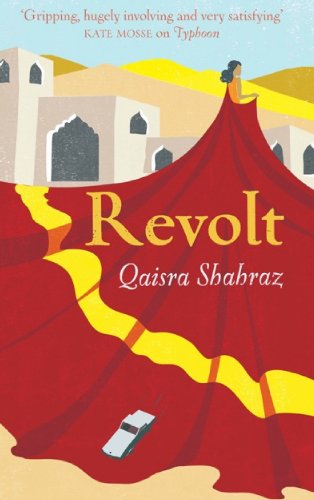Why a Booktrail?
2000s: A very funny yet ultimately moving story about a fictional village but a very real and in depth look at life in a Pakistani village.

2000s: A very funny yet ultimately moving story about a fictional village but a very real and in depth look at life in a Pakistani village.
Set in the fictional Pakistani village of Gulistan, with an appearance of Liverpool in England, this is a story about human relationships and the complicated threads of love, loyalty and sacrifice that keep families together and sadly, also apart.
It’s a multi layered novel with three sisters of a family dealing with their grown up children and their children’s relationships which often go against their wishes, their sense of marrying the right person – either caste or religion – and the resulting problems.
The stunning backdrop may be fictional but it may well be representative of a typical Pakistani village community –
In Gulistan village, the morning sun was high up over the sugarcane fields
..dusty path……the humble local rikshaws..the rural landscape…
The description of homes – rich versus poor – is a key indicator of status and pride –
“..the rooftop terrace with its elegant alcoves, wall niches, marble floor and rows of earthenware potted petunias and geraniums in full bloom, propped against the iron railings.”
But it’s the scenery in and around the village, the coulour, the variety of landscape, the food, oh the food and the cultural tapestry which makes the characters and their homes what they are.
Another way in which the Pakistan setting is evoked is via the sprinkling of language – (there is a glossary in the back) . Goorie is the local word for white woman and many words are introduced in the original language which gives a powerful authentic feel to the novel as a whole.
The relationships between locals and outsiders – particularly the hilarious portrayal of the strange white woman or ‘Goorie’ is a source of much of the humour. She is received as something of an oddity – shock and disbelief surround her wherever she goes.
“Begum won’t be pleased if I keep bringing visitors to the hevali (mansion). She says that it’s not a zoo,or that the goorie is not an animal on exhibition for us all to ogle.”
A colourful world in every sense of the word.
Susan:
You would think that such a subject particularly dealing with Pakistani women, muslim women, would be a serious and difficult subject to write about and even though the blurb on the back read well, I did wonder whether I would relate to any of the women in the book and understand their lives and concerns.
Turns out I had nothing to worry about. (QS has such a skill as a writer) I will certainly be looking at more of her work) that she has not only introduced me to some of the most funny and warm characters that I have ever had the pleasure of meeting. I have not read many stories set in Pakistan and don’t even pretend to know anything about the culture but I will definitely be visiting the country again if this book is anything to go by.
I laughed at many points of this story – the characters are so well developed that by the end I felt as if I knew each of them very well – especially the local gossip. And they were as warming as i would expect them to be if I visited Gulistan myself for real. I want to eat chappati and ooh patesas….
As I closed the book, I swear I could hear the women still chattering away, their animated voices tickling my ears long after I’d finished reading.